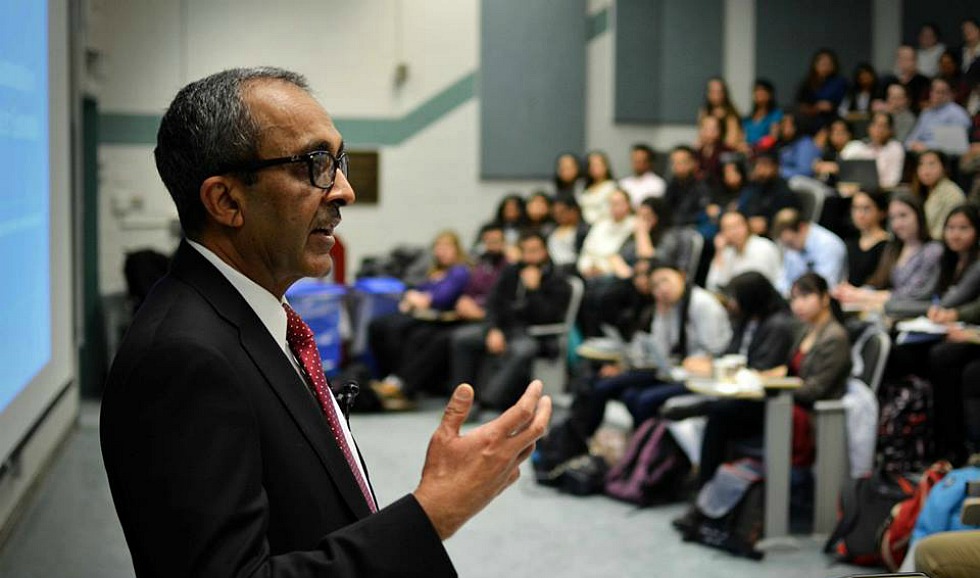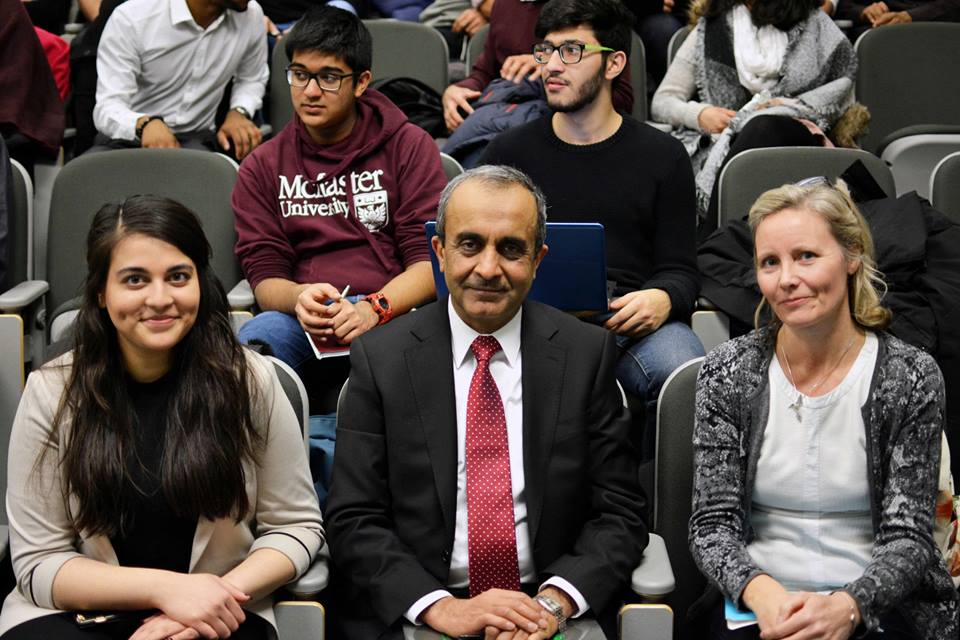Workshop teaches students how acting locally can lead to global impact

Jamil Ahmad, Deputy Director of the United Nations Environment Programme, speaks to 250 McMaster students at a recent workshop aimed at providing students with the tools they need to promote and support the UN’s Sustainable Development Goals by taking action in their own communities.
250 McMaster students gathered recently to learn from United Nations officials and other experts how they can help build more inclusive, equitable, and sustainable future in Hamilton and around the world.
The students were participating in a special training session facilitated by Jamil Ahmad, Deputy Director of the United Nations Environment Programme (UNEP) aimed at helping youth understand the United Nation’s Sustainable Development Goals (SDGs) and how students can support and promote SDGs in the Hamilton community.
Adopted in 2015, the SDGs are part of Transforming our world: the 2030 Agenda for Sustainable Development, an action plan passed by the UN General Assembly containing 17 goals and 169 targets to end poverty, protect the environment and build global prosperity.
Natasha Jakac-Sinclair, a fourth year Biology student, minoring in Political Science, and John Wojcik, a fourth-year student in Justice, Political Philosophy, and Law organized the workshop which was held in partnership with SDG Youth Training Canada, a project of the Foundation for Environmental Stewardship (FES). The goal of the training, which is taking place at universities across Canada, is to empower youth and educate them about specific actions they can take in their own communities to combat climate change and build sustainable societies.
“Our individual actions have a consequential global impact,” says Jakac-Sinclair. “We don’t need to think about going elsewhere to make a difference when we can make a difference in the communities we live in. Knowing how to implement Sustainable Development Goals means that we can increase equity through collaboration, diplomacy, and discourse. This training helps teach students that their interdisciplinary skill sets are adaptable to making these effective changes.”
Julie Marshall, Canadian spokesperson for the World Food Program, Filomena Tassi, MP for Hamilton West – Ancaster –Dundas, Ozi Akporuno, a Master’s student in McMaster’s Global Health Program and member of AIESEC McMaster, and Steve Lee, Director of the Foundation of Environmental Stewardship, all spoke at the workshop to share their experiences and talk about how students can work locally to help achieve Sustainable Development Goals.

(From left) Hira Chaudry, Foundation of Environmental Stewardship, Jamil Ahmad, Deputy Director of the United Nations Environment Programme and Julie Marshall, Canadian Spokesperson for the World Food Program. Photo by Angela Li.

